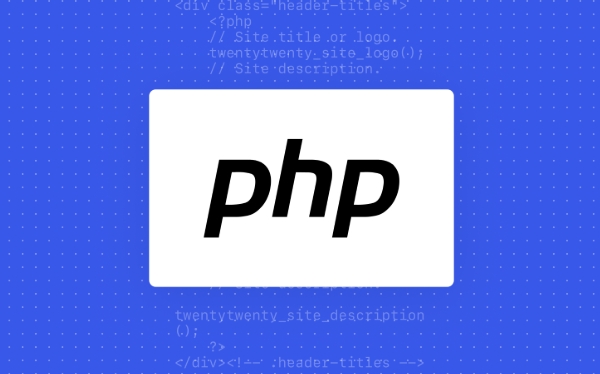There are several tools available for running PHP code directly on the Internet, including 3v4l.org, OnlinePHP.io, JDoodle, paiza.IO and Replit, which support quick testing of code snippets, debugging logic, learning new features and sharing code. 1. 3v4l.org is suitable for testing compatibility of different PHP versions; 2. OnlinePHP.io has a simple interface, which is convenient for direct operation and viewing results; 3. JDoodle and paiza.IO support multilingual development; 4. Replit has comprehensive functions and is suitable for testing complex projects. These tools are available without registration, but are not recommended to process sensitive data or connect to real databases. In addition, some platforms may limit execution time, memory, temporary files, and external network access, but are practical enough for verification logic.

If you want to know what tools can run PHP code directly on the Internet, there are actually many options. These online running environments can help you quickly test code snippets, debug logic, or as an auxiliary tool for learning PHP.

Common PHP online running platform
Currently popular online PHP execution tools include:

- 3v4l.org : Supports multiple PHP versions, suitable for testing compatibility
- OnlinePHP.io : The interface is simple, you can run directly and view the output results.
- JDoodle and paiza.IO : In addition to PHP, it also supports multiple languages, suitable for multilingual developers
- Replit : It has a full function and can create a project structure, suitable for slightly more complex code testing
These platforms basically do not require registration to be used, and you can run by opening the web page and pasting the code.
What can I do with online running tools?
Many people think that this kind of tool can only write an echo "Hello World" , but in fact they can do more things than you think:

- Test function behavior: For example, if you are not sure about the difference between
array_mapandarray_filter, you can write a small example to verify it on the spot - Debugging logic error: For example, if you wrote a loop but the result is wrong, you can copy it directly and change it to see what the problem is.
- Learn new features: Constructor Property Promotion like PHP 8, you can try the effect when changing several versions
- Share code snippet: If someone asks you a question, you can throw an online link and let him click on it and run it to see the results.
However, it should be noted that these platforms are generally not recommended for processing sensitive data or connecting to real databases.
Things to note when using
Although it is convenient, there are some restrictions and precautions for online operating environment:
- Some platforms have restrictions on execution time or memory, and too complex operations may not be able to run.
- Don't run sensitive codes involving account passwords, API keys, etc., after all, it is not a server you control yourself.
- Temporary files, sessions, and other functions may be limited and cannot fully simulate the local development environment.
- Some platforms prohibit access to external networks, so they may fail when using cURL or file_get_contents.
If you just want to verify that a piece of logic is correct, these limitations usually don't affect much.
Basically that's it. If you just write small scripts occasionally and debug problems, using these tools is enough.
The above is the detailed content of What are the PHP online runtime tools?. For more information, please follow other related articles on the PHP Chinese website!

Hot AI Tools

Undress AI Tool
Undress images for free

Undresser.AI Undress
AI-powered app for creating realistic nude photos

AI Clothes Remover
Online AI tool for removing clothes from photos.

Clothoff.io
AI clothes remover

Video Face Swap
Swap faces in any video effortlessly with our completely free AI face swap tool!

Hot Article

Hot Tools

Notepad++7.3.1
Easy-to-use and free code editor

SublimeText3 Chinese version
Chinese version, very easy to use

Zend Studio 13.0.1
Powerful PHP integrated development environment

Dreamweaver CS6
Visual web development tools

SublimeText3 Mac version
God-level code editing software (SublimeText3)

Hot Topics
 How to combine two php arrays unique values?
Jul 02, 2025 pm 05:18 PM
How to combine two php arrays unique values?
Jul 02, 2025 pm 05:18 PM
To merge two PHP arrays and keep unique values, there are two main methods. 1. For index arrays or only deduplication, use array_merge and array_unique combinations: first merge array_merge($array1,$array2) and then use array_unique() to deduplicate them to finally get a new array containing all unique values; 2. For associative arrays and want to retain key-value pairs in the first array, use the operator: $result=$array1 $array2, which will ensure that the keys in the first array will not be overwritten by the second array. These two methods are applicable to different scenarios, depending on whether the key name is retained or only the focus is on
 php regex for password strength
Jul 03, 2025 am 10:33 AM
php regex for password strength
Jul 03, 2025 am 10:33 AM
To determine the strength of the password, it is necessary to combine regular and logical processing. The basic requirements include: 1. The length is no less than 8 digits; 2. At least containing lowercase letters, uppercase letters, and numbers; 3. Special character restrictions can be added; in terms of advanced aspects, continuous duplication of characters and incremental/decreasing sequences need to be avoided, which requires PHP function detection; at the same time, blacklists should be introduced to filter common weak passwords such as password and 123456; finally it is recommended to combine the zxcvbn library to improve the evaluation accuracy.
 How to handle File Uploads securely in PHP?
Jul 08, 2025 am 02:37 AM
How to handle File Uploads securely in PHP?
Jul 08, 2025 am 02:37 AM
To safely handle PHP file uploads, you need to verify the source and type, control the file name and path, set server restrictions, and process media files twice. 1. Verify the upload source to prevent CSRF through token and detect the real MIME type through finfo_file using whitelist control; 2. Rename the file to a random string and determine the extension to store it in a non-Web directory according to the detection type; 3. PHP configuration limits the upload size and temporary directory Nginx/Apache prohibits access to the upload directory; 4. The GD library resaves the pictures to clear potential malicious data.
 PHP Variable Scope Explained
Jul 17, 2025 am 04:16 AM
PHP Variable Scope Explained
Jul 17, 2025 am 04:16 AM
Common problems and solutions for PHP variable scope include: 1. The global variable cannot be accessed within the function, and it needs to be passed in using the global keyword or parameter; 2. The static variable is declared with static, and it is only initialized once and the value is maintained between multiple calls; 3. Hyperglobal variables such as $_GET and $_POST can be used directly in any scope, but you need to pay attention to safe filtering; 4. Anonymous functions need to introduce parent scope variables through the use keyword, and when modifying external variables, you need to pass a reference. Mastering these rules can help avoid errors and improve code stability.
 Commenting Out Code in PHP
Jul 18, 2025 am 04:57 AM
Commenting Out Code in PHP
Jul 18, 2025 am 04:57 AM
There are three common methods for PHP comment code: 1. Use // or # to block one line of code, and it is recommended to use //; 2. Use /.../ to wrap code blocks with multiple lines, which cannot be nested but can be crossed; 3. Combination skills comments such as using /if(){}/ to control logic blocks, or to improve efficiency with editor shortcut keys, you should pay attention to closing symbols and avoid nesting when using them.
 Tips for Writing PHP Comments
Jul 18, 2025 am 04:51 AM
Tips for Writing PHP Comments
Jul 18, 2025 am 04:51 AM
The key to writing PHP comments is to clarify the purpose and specifications. Comments should explain "why" rather than "what was done", avoiding redundancy or too simplicity. 1. Use a unified format, such as docblock (/*/) for class and method descriptions to improve readability and tool compatibility; 2. Emphasize the reasons behind the logic, such as why JS jumps need to be output manually; 3. Add an overview description before complex code, describe the process in steps, and help understand the overall idea; 4. Use TODO and FIXME rationally to mark to-do items and problems to facilitate subsequent tracking and collaboration. Good annotations can reduce communication costs and improve code maintenance efficiency.
 How Do Generators Work in PHP?
Jul 11, 2025 am 03:12 AM
How Do Generators Work in PHP?
Jul 11, 2025 am 03:12 AM
AgeneratorinPHPisamemory-efficientwaytoiterateoverlargedatasetsbyyieldingvaluesoneatatimeinsteadofreturningthemallatonce.1.Generatorsusetheyieldkeywordtoproducevaluesondemand,reducingmemoryusage.2.Theyareusefulforhandlingbigloops,readinglargefiles,or
 How to create an array in php?
Jul 02, 2025 pm 05:01 PM
How to create an array in php?
Jul 02, 2025 pm 05:01 PM
There are two ways to create an array in PHP: use the array() function or use brackets []. 1. Using the array() function is a traditional way, with good compatibility. Define index arrays such as $fruits=array("apple","banana","orange"), and associative arrays such as $user=array("name"=>"John","age"=>25); 2. Using [] is a simpler way to support since PHP5.4, such as $color






